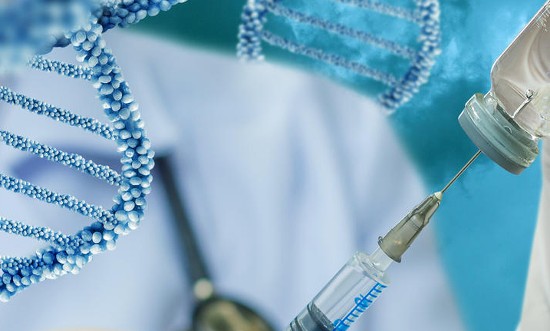In 2017, I sat down to read a book entitled, A Crack in Creation: Gene Editing and the Unthinkable Power to Control Evolution. Written by Jennifer Doudna it described a new tool called CRISPR that could edit DNA. Doudna first published a description of this gene editing tool in the journal Science in 2012. I wrote about CRISPR in 2017 and then again following the progress being made using it and the evolution of its tool capabilities as researchers in laboratories around the world discovered novel ways to use it.
In 2019, CRISPR started moving out of university research laboratories and into the world of medical clinical trials. In one case it was used to edit the DNA of T-cells by removing a gene and replacing it with one to attack sarcomas and multiple myelomas. A similar editing experiment replaced a gene in people suffering from beta-thalassemia, a genetic blood disorder. And in another trial, CRISPR-modified bone marrow stem cells were used to eliminate sickle cell anemia.
Among the Massachusetts Institute of Technology’s 10 technology breakthroughs in 2023, CRISPR made the list. Why? Because MIT sees CRISPR’s days in clinical trials around rare diseases coming to an end. The CRISPR of today, eleven years after it first came on the scene, is no longer just a slice-and-dice tool.
CRISPR Going Mainstream
CRISPR is being used by a company, Verve Therapeutics, today, to alter genetic code associated with high cholesterol that is treated using drugs called statins.
I take statins once a day because my cholesterol levels are slightly higher than normal. I remember when it was first prescribed, the doctor said the city should be putting statins in the drinking water just like fluoride because high cholesterol was a huge problem here in North America.
Cholesterol comes in two forms, one good, the other bad. Our bodies need good cholesterol because it is essential to cells. But too much of the bad kind can clog arteries and lead to strokes and heart attacks.
According to the U.S. Centers for Disease Control (CDC), more than half of American adults are on prescribed statins to reduce cholesterol levels. That number isn’t too far different in Canada. But there are problems with being on statins forever. Blood levels have to be checked periodically to ensure the doses are right and cholesterol levels are within the normal range. Statins also have side effects. For instance, when I first started on a statin I had horrific backaches. A pharmacist recommended I take a supplement, CoQ10, with the statin and the problem has never reoccurred.
Genetic Vaccines in Our Future
What Verve is offering instead of a statin, is the first genetic vaccine on the market, a one-time fix to permanently lower bad cholesterol levels. To understand how a genetic vaccine works here is a quick refresher on DNA. It is a complex molecule containing four nucleotides, also called nucleobases. They go by the names adenine, guanine, cytosine and thymine. These are the biological building blocks for life on Earth.
What Verve has done is use CRISPR to edit a single nucleobase within our DNA for PCSK9, a gene expressed in the liver. PCSK9 encodes a protein that regulates the amount of cholesterol in blood plasma. Delivered as a vaccine Verve has shown the treatment lowers blood cholesterol levels by as much as 70% and keeps it down permanently. Limited human testing has shown excellent results. Larger clinical trials are coming up.
From Verve’s curing high cholesterol to the use of CRISPR for genetic vaccines to cure other diseases is not too far in the future. A CRISPR-derived genetic vaccine could lead to a cure for diabetes, high blood pressure, and even Alzheimer’s.
CRISPR for the masses can be revolutionary. It has enormous ramifications for humanity with genetic vaccinations replacing many prescription drugs. And a genetic vaccination will only need to be administered once providing a permanent fix.
Those who see this as us playing God will likely react negatively to this medical breakthrough. I suspect the anti-vaxxers will be out with pitchforks in hand ready to march. And on the Internet conspiracy theorists will spread fear and misinformation about CRISPR and the evil intent of a medical cabal out to take over the world and turn us into zombies. For those who fit into these categories, the option of the prescription pills we have today will still remain.










[…] that replaces a bad gene with a good one would not be unwelcome, and would be a further step in the development of gene-editing treatments for more genetic-caused diseases including many forms of […]